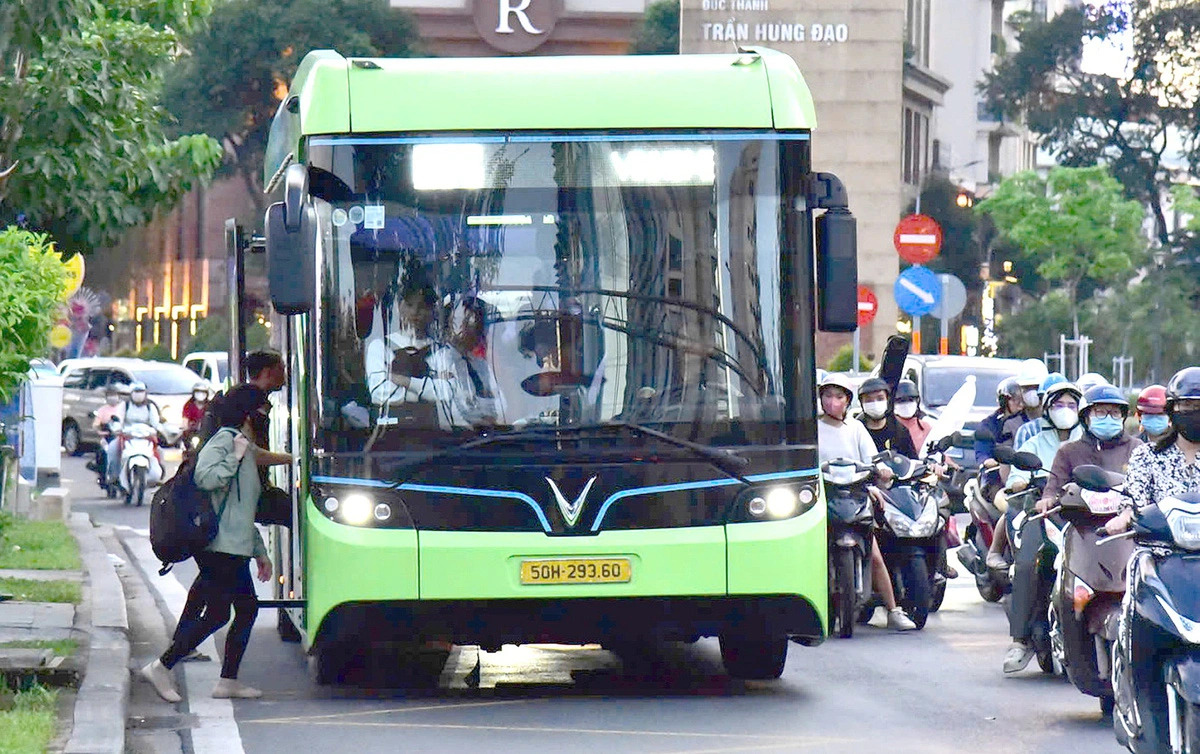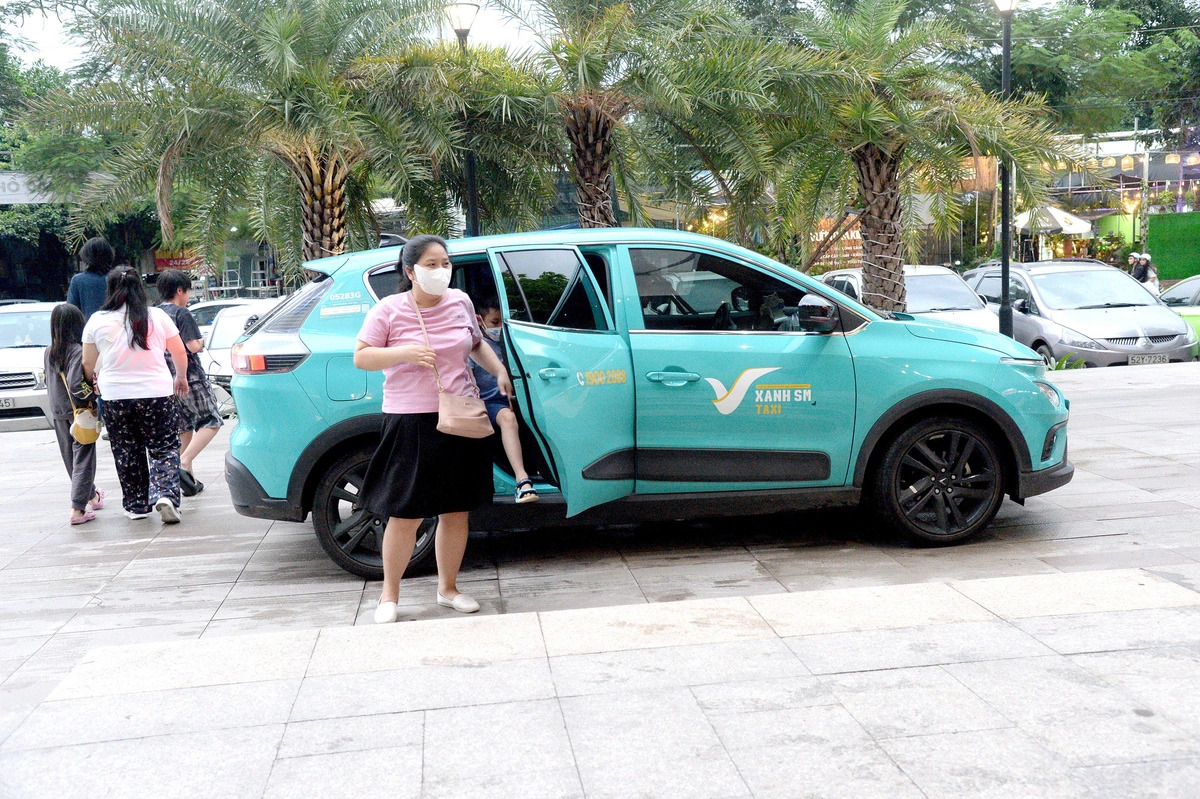Two years following the announcement of its Green Transition Program, Vietnam is actively working to develop a comprehensive strategy for diverse transportation modes and tackle the associated challenges to achieve its net-zero emissions goal by 2050.
In October 2021, the Vietnamese government approved the National Strategy for Green Growth for 2021-30, with a vision toward 2050.
This strategy is aimed at reducing Vietnam’s greenhouse gas emissions per unit of gross domestic product (GDP) by at least 15 percent from 2014 levels by 2030, with a further reduction of at least 30 percent by 2050.
To facilitate these objectives, the prime minister approved the Green Transition Program on July 22, 2022, which focuses on decreasing carbon and methane emissions in the transportation sector while working toward a green system to achieve net-zero emissions by 2050.
Khuat Viet Hung, director of the Transport Development and Strategy Institute under the Ministry of Transport, said in an interview with Tuoi Tre (Youth) newspaper that the transition to green energy in Vietnam's transportation will primarily target the road sector until 2030, given its scale and technological readiness.
He stressed the importance of a comprehensive road map that integrates technology and financial models, along with synchronized policy implementation.
Pilot projects and phased infrastructure upgrades are crucial for ensuring a successful transition.
So far, the Ministry of Transport, the Ministry of Construction, and 59 out of 63 provinces have initiated action plans.
However, major cities like Hanoi, Ho Chi Minh City, Bac Ninh, and Khanh Hoa have not yet released their schemes, largely due to their complex urban transportation challenges.
In September, the Ministry of Transport reported to the prime minister on the difficulties in formulating actionable plans, noting that achieving net-zero emissions presents new challenges not only for Vietnam but also for other countries.
Hung said that creating a feasible road map and implementation plan for a period of nearly 30 years (2022-50) is a complicated task that has led some departments to propose sidestepping detailed tasks.
Discrepancies in timelines for transitioning to electric vehicles have arisen, with nine provinces seeking to postpone the full adoption of electric buses until after 2025.
Moreover, 28 provinces have yet to specify the programs and tasks needed for their local plans, Hung said.
Two years after the announcement of the Green Transition Program, incentives for electric vehicle adoption are still under development as the shift to green energy necessitates significant investment in new vehicles, as well as in the planning and development of new energy infrastructure.
Transitioning to an electric bus system entails more than just acquiring new vehicles; it requires the establishment of charging infrastructure, operational protocols, maintenance systems, and driver training.
While Hanoi and Ho Chi Minh City have outlined policies for transitioning urban buses, broader support for the shift to electric vehicles and related infrastructure remains lacking.
Critical components such as technical standards for charging stations and electricity pricing mechanisms are still pending further discussion.
In addition to the road sector, the railway sector holds significant potential, particularly with advancements in electrified rail technology and hydrogen-powered engines.
However, achieving net-zero emissions by 2050 will demand substantial resources, including financial, technological, and manpower capabilities, as well as international collaboration.
To expedite this transition, each local region must undertake proactive initiatives and secure substantial support from central ministries and international organizations to enhance their financial, technological, and operational capabilities.
|
|
| An electric taxi picks up passengers at Aeon General Merchandise Store in District 8, Ho Chi Minh City, Vietnam. Photo: Tu Trung / Tuoi Tre |
Adopting electric vehicles, whether for personal use or public transport, presents numerous challenges.
For instance, investing in Chinese-manufactured electric buses is considered the most cost-effective, with an average purchase price of about VND7 billion (US$290,000) for a bus featuring a 255 kWh battery that can travel 230-250km on a single charge.
In comparison, a large-capacity bus produced by Vietnam’s VinFast costs around VND7.4 billion ($292,000)
Consequently, electric buses are four times more expensive than standard buses and 3.2 times more than larger buses currently used for depreciation calculations in Hanoi and Ho Chi Minh City.
Moreover, the operational range of public or personal vehicles relies heavily on the battery capacity of electric vehicles.
Currently, Vietnam lacks a comprehensive legal framework for planning, standards for constructing charging infrastructure, and guidelines for managing investments in and installations of charging stations.
Hung pointed to international examples of supportive policies, such as Thailand’s subsidy and tax reduction program for electric vehicles between 2022 and 2025.
Under this program, buyers of battery electric vehicles (BEVs) with batteries ranging from 10 to 30 kWh receive a subsidy of 70,000 baht ($2,083), while those with batteries exceeding 30 kWh are entitled to a subsidy of 150,000 baht ($4,464).
In South Korea, subsidy policies for electric vehicles include tax reductions of up to $4,200 per vehicle, alongside maximum subsidies of $16,400 for BEVs and $4,300 for plug-in hybrid electric vehicles.
Since 2019, electric vehicle users have benefited from government subsidies ranging from $350 to $3,000 for acquiring fast-charging equipment to replace slow chargers.
In North America, incentives and policies for electric vehicle development vary by state or province.
For example, British Columbia and Quebec in Canada offer subsidies for personal electric vehicle purchases ranging from $500 to $14,000, along with a fixed national incentive of $6,000 for each personal electric vehicle sold over the next 20 years.
Despite these international efforts, Hung noted that direct support policies for individuals transitioning to electric vehicles are not widely embraced by many governments.
They would rather focus on financial support solutions and market protection for electric vehicle manufacturers and charging station providers.
In Vietnam, the government is actively working to develop a balanced strategy for various transportation modes, leveraging the unique advantages of each in alignment with the country's geographical and economic conditions across its diverse regions.
Like us on Facebook or follow us on Twitter to get the latest news about Vietnam!


















































